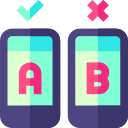
Your Voices, Our Direction: Digital vs. Conventional Language Learning
Selected theme: Student Feedback: Digital vs. Conventional Language Education. This home page gathers candid student voices, practical takeaways, and hopeful ideas to shape better language learning experiences. Add your story and subscribe to help guide our next explorations.
What Students Appreciate in Digital Language Learning
Many students celebrate the freedom to pause lessons, replay explanations, and study during commutes or late nights. One shy learner told us asynchronous voice threads finally let her practice speaking without stage fright. Share your best timing hacks, and subscribe for more peer strategies.
What Students Appreciate in Digital Language Learning
Quizzes with instant scoring, spaced repetition apps, and pronunciation analyzers give quick signals on progress. A student noted that immediate correction turned mistakes into tiny milestones rather than setbacks. Comment with your favorite tool, and tell us how feedback cadence affects your motivation.


Where Conventional Classrooms Still Shine
Learners value micro interventions: a raised eyebrow, a quick gesture for word order, a handwritten note on aspect or gender. These tiny nudges land instantly. Tell us about a teacher move that changed your speaking, and invite a friend to weigh in.
Where Conventional Classrooms Still Shine
Sitting with classmates builds camaraderie and pressure that helps many follow through. Study partners form naturally when you pack up together after class. How does your classroom community keep you accountable, and what rituals motivate attendance and practice over time?


Barriers and Frustrations Students Report
Notifications fragment attention, and long video calls drain energy. One student joked that he learned more muting tabs than memorizing verbs. What boundaries keep you focused online, and what platform features reduce cognitive load without losing interactivity?
Barriers and Frustrations Students Report
Some students feel rushed by quick chalkboard explanations, while others feel slowed by repeated basics. A bilingual classmate said she alternated between boredom and panic. Share how teachers could differentiate pace and practice while keeping group morale high.





Connectivity and device realities
Shared laptops, unstable internet, and crowded homes change what is possible online. Students ask for offline downloads, low bandwidth options, and campus hotspots. Tell us which supports would remove barriers for you or a classmate without compromising learning quality.
Time, commute, and cost pressures
Bus schedules, jobs, and caregiving complicate attendance and homework windows. Blended formats can reduce travel while preserving vital in person moments. Share how logistics shape your learning, and help us map schedules that respect real lives without lowering expectations.
Mental health and belonging
Some students feel isolated online, while others panic in noisy classrooms. Ritual check ins, small groups, and kinder response norms help. What practices make you feel safe to speak and make mistakes, and how can communities sustain that safety across formats?
Skill Growth Across Modes
Online voice journals and pronunciation tools reduce stage fright, then studio style classroom conversations push spontaneity. Students want both. Which speaking tasks suit your personality, and how could teachers scaffold the leap from rehearsed recordings to live improvisation?

Student Stories That Changed Our Thinking
Maya and the midnight forum
Working two jobs, Maya wrote forum replies at midnight, then practiced pronunciation with a room tone app before dawn. In class, she used that practice to lead a lively dialogue. Share your workaround story, and subscribe for a future feature.
Kenji and the chalkboard breakthrough
Kenji stalled online until a teacher sketched verb aspects with colored chalk. The physical drawing unlocked a mental map. Later, he recorded daily voice notes to cement the pattern. Tell us about a moment when a visual clicked and everything accelerated.
Lina and community courage
Lina hid her camera for weeks, then joined a campus conversation circle and discovered laughter dismantled her fear. Back online, she spoke up more boldly. Which community spaces bolster your courage, and how can we help more learners find them quickly?
